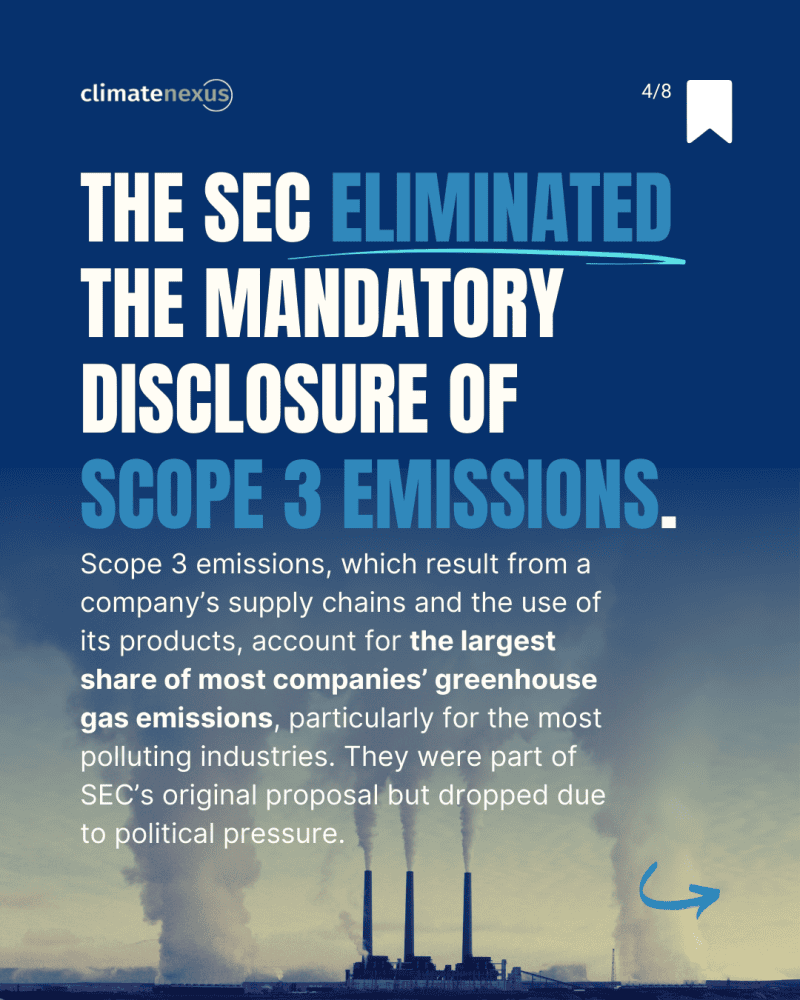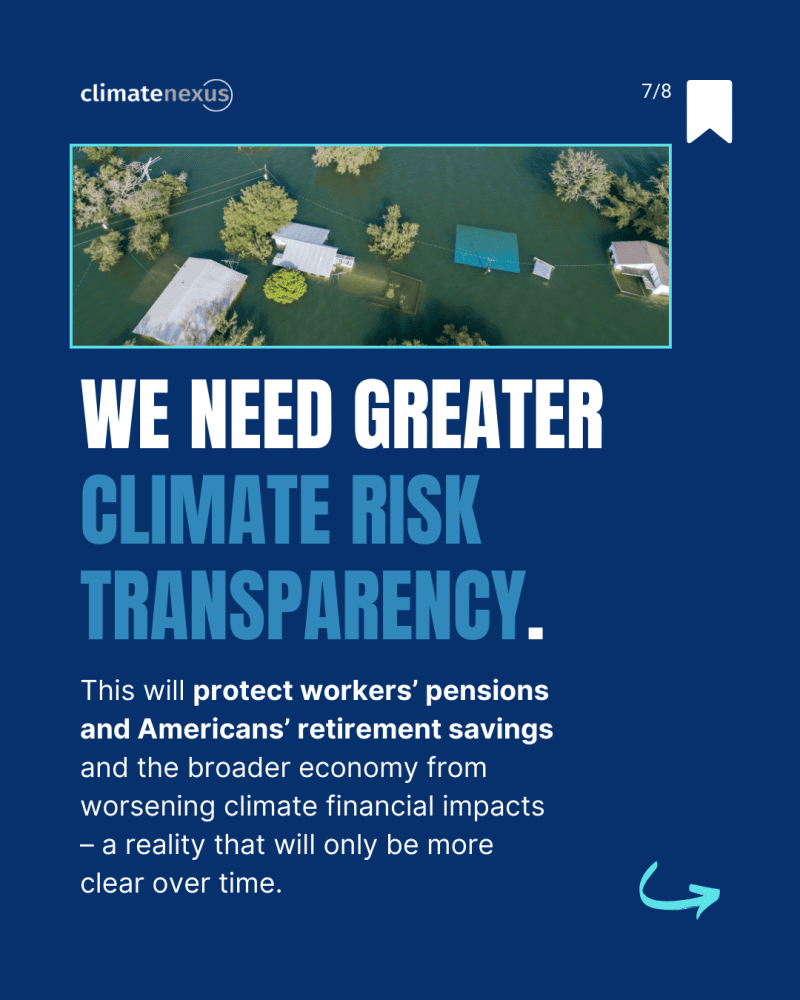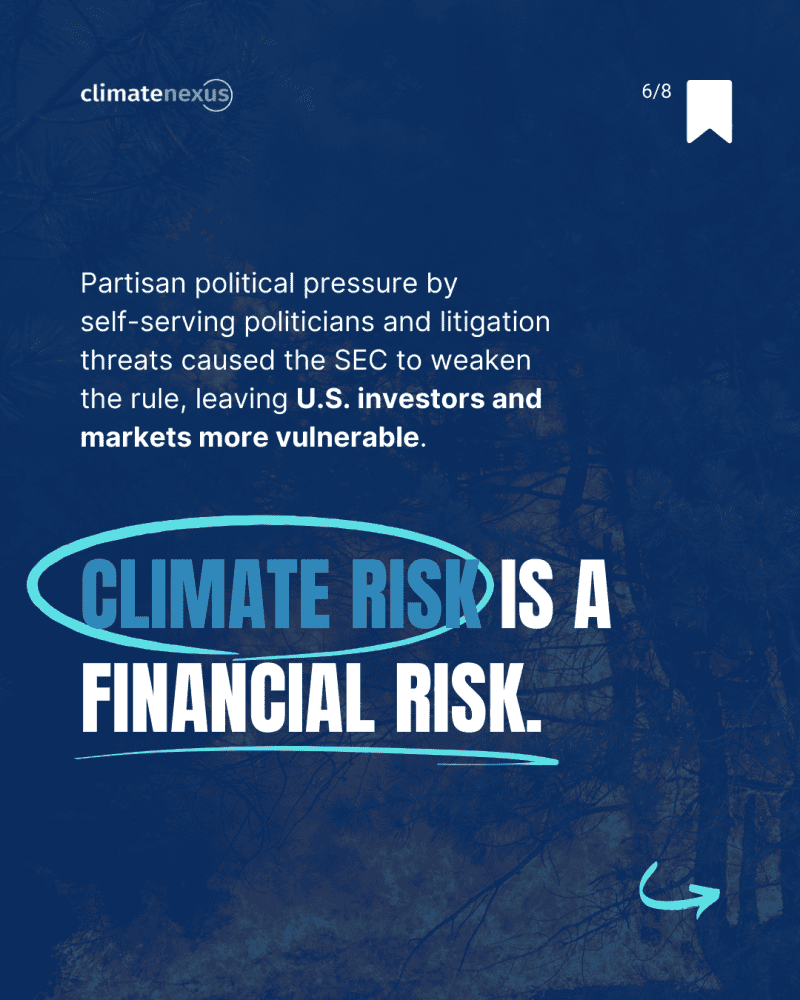After years of debate and delay, the Securities and Exchange Commission voted last week to require public companies in the U.S. to disclose and report more information about the climate risks impacting their businesses.
The new rule is a step in the right direction for investors, markets, and the American public. Unfortunately, the final rule was also scaled back from more comprehensive transparency requirements originally proposed in March 2022.
The most critical element scrapped in the final rule was transparency requirements for “Scope 3” emissions, which account for a whopping 70% of the average company’s total emissions and up to 90% of oil and gas companies’ emissions. The U.S. financial markets have long been a leader in transparency and disclosure to help investors understand risk. Still, that standard could be undermined by polluting fossil fuel interests, self-serving politicians, and dark money all waging a campaign against even this scaled-back rule, willing to do anything to upend it through litigation or legislative rollbacks.

Key Points to Consider
- Your hard-earned investments and retirement savings deserve strong protections from major sources of financial risk. The financial risks climate change poses to investors, other market participants, and the economy are real and well-documented. Estimates show climate change is expected to cost the global economy $178 trillion over the next half-century.

- The SEC rule falls short on emissions disclosure, creating a more burdensome patchwork. Disclosing Scope 3 emissions (the emissions released by the use or combustion of a company’s product) is necessary to understand a company’s climate-related risks and impacts fully. By omitting Scope 3 and establishing an arbitrary materiality standard for Scopes 1 and 2 emissions, U.S. markets will lag behind other jurisdictions in climate financial risk transparency, adding to the Byzantine patchwork of regulatory requirements opponents claim to want to avoid. However, most major U.S.-based, publicly traded companies will still be subject to reporting requirements in areas where they operate.
- Because they do business in California, at least 75% of Fortune 1000 companies are covered by the state’s emissions reporting requirements, including Scope 3; and 73% will be required to disclose emissions and climate-related financial risks. Other major economies, including European Union member countries, Canada, Japan, India, Egypt, New Zealand, and now China and Singapore, have or are also advancing policies and regulations on corporate disclosure, including Scope 3 transparency requirements, that will affect the majority of U.S. companies.
- Scope 3 transparency requirements are coming because investors are demanding them to make sound investment decisions that protect Americans’ investments and savings.
- The final rule’s materiality standard for Scope 1 and 2 emissions could potentially discourage companies from making climate and emissions reduction commitments.
- Companies that fail to go beyond the minimum disclosure required under the weakened SEC rule, refusing to disclose their full spectrum of emissions and critical information related to climate financial risks, will lose the confidence of financial professionals, asset managers, and investors going forward.
- A deluge of dark money thwarted a better rule. Dark money groups and Big Oil orchestrated a large-scale attack campaign against investor-friendly climate risk transparency and disclosure.

- Over 97% of investors supported a strong climate disclosure rule, including making Scope 3 emissions disclosure a fundamental requirement of the rule, but a vocal minority of fossil fuel-aligned interests and dark money front-groups spent tens of millions on a climate denial campaign to undermine the SEC rule.
- The threat posed by litigation amid rising conservative judicial activism was a major consideration for the SEC. The watering down of the final rule, such as by removing Scope 3 provisions, is the direct result of a decades-long dark money campaign to install conservative activist judges and tilt the playing field.
- The rule is still an important step in the direction of transparency, disclosure, and climate financial risks. There’s no question that ordinary Americans are better off with this rule than without it. The whole point of disclosure is to protect investors and ensure functioning capital markets. Despite the rule’s shortcomings, the SEC has opened the door to mandatory climate risk disclosure with specific requirements.
Where Do We Go From Here?
Markets don’t function properly when pertinent information is purposely withheld. As the opposition mounts legal and congressional challenges, which they already are, this message guidance can help combat disinformation. Mandatory disclosure of climate financial risks is essential for consumer protection: Skyrocketing insurance premiums driven by climate change are just one of many real-world examples showing why we must defend and improve upon this rule.
This expert panel briefing attended by nearly 125 partners and journalists, coordinated and hosted by Climate Nexus, Americans for Financial Reform Education Fund, Public Citizen, and the Sierra Club, provides further insight into the SEC rule.


